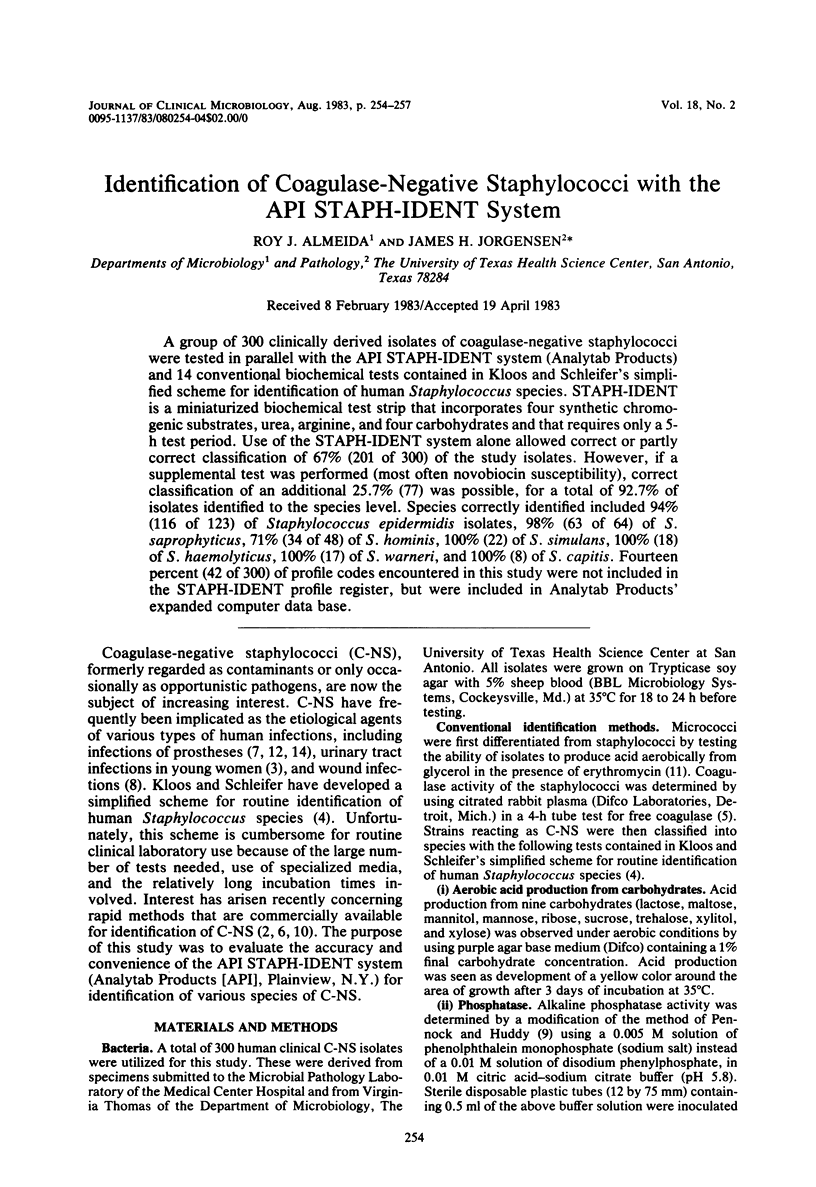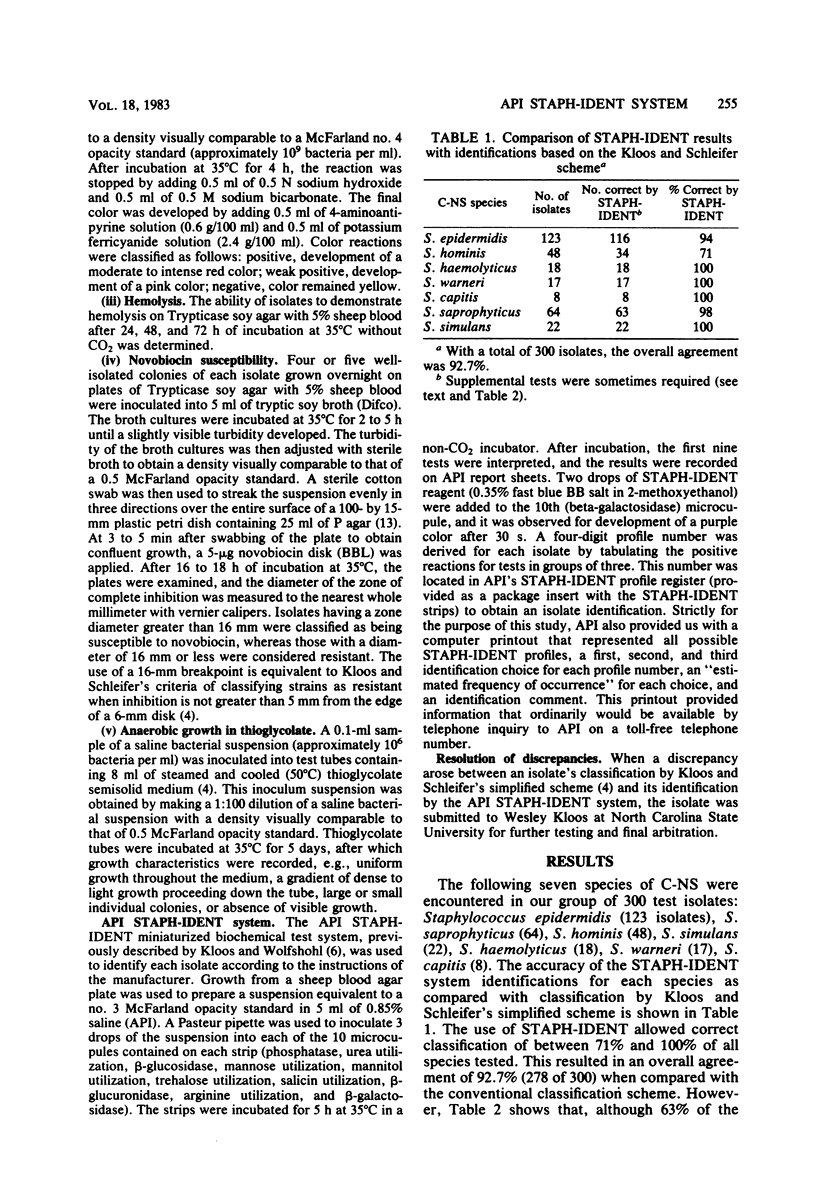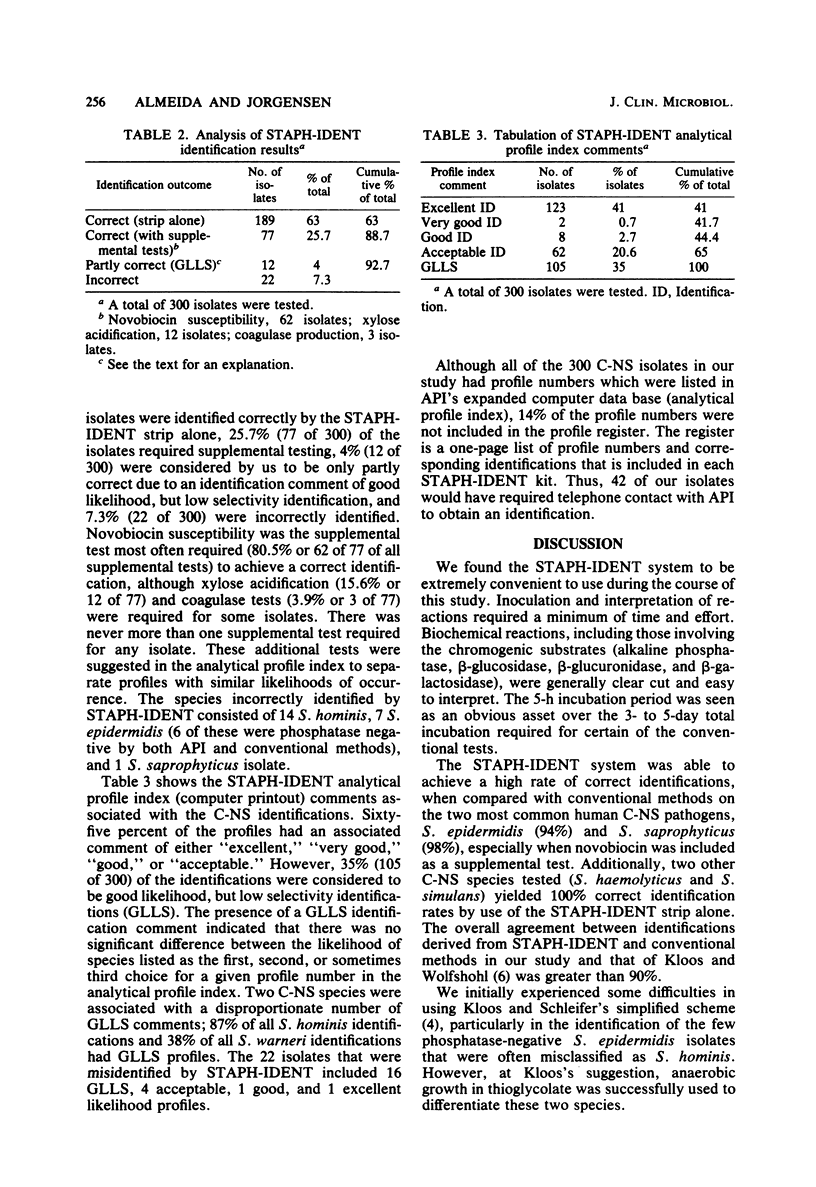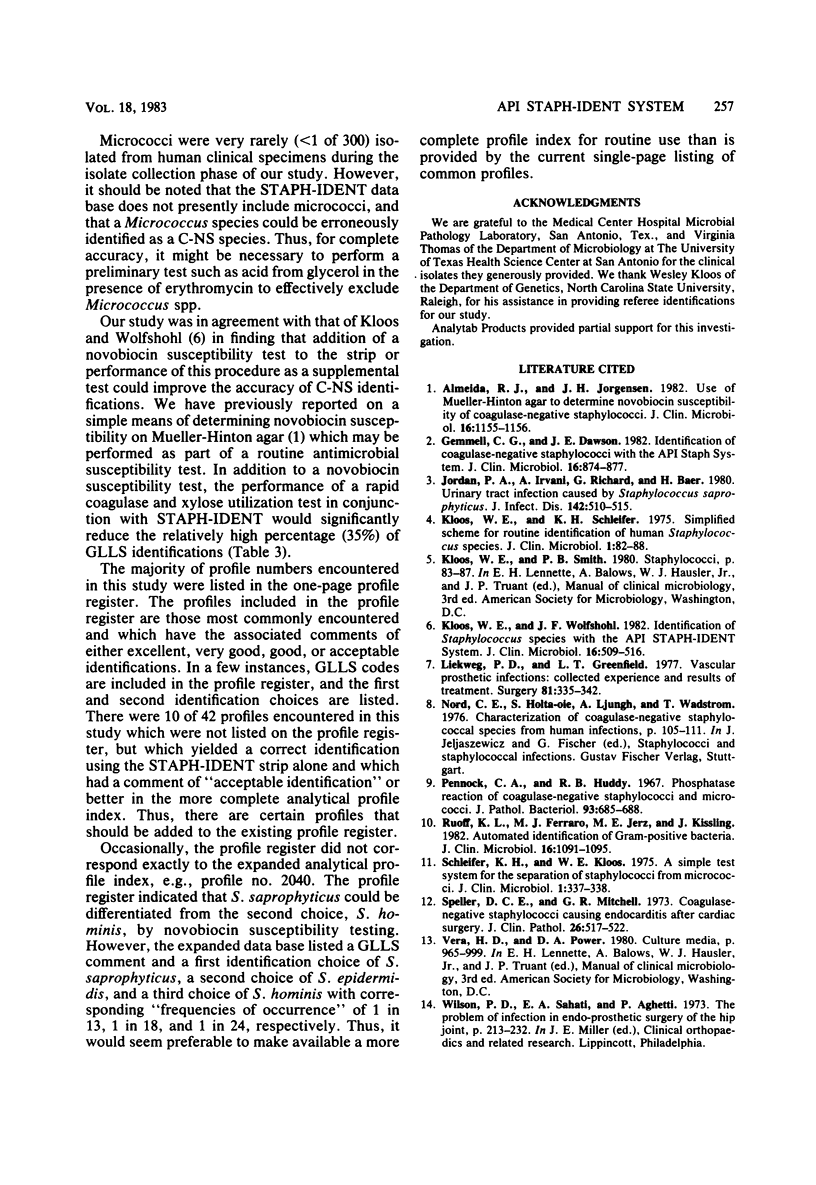Abstract
A group of 300 clinically derived isolates of coagulase-negative staphylococci were tested in parallel with the API STAPH-IDENT system (Analytab Products) and 14 conventional biochemical tests contained in Kloos and Schleifer's simplified scheme for identification of human Staphylococcus species. STAPH-IDENT is a miniaturized biochemical test strip that incorporates four synthetic chromogenic substrates, urea, arginine, and four carbohydrates and that requires only a 5-h test period. Use of the STAPH-IDENT system alone allowed correct or partly correct classification of 67% (201 of 300) of the study isolates. However, if a supplemental test was performed (most often novobiocin susceptibility), correct classification of an additional 25.7% (77) was possible, for a total of 92.7% of isolates identified to the species level. Species correctly identified included 94% (116 of 123) of Staphylococcus epidermidis isolates, 98% (63 of 64) of S. saprophyticus, 71% (34 of 48) of S. hominis, 100% (22) of S. simulans, 100% (18) of S. haemolyticus, 100% (17) of S. warneri, and 100% (8) of S. capitis. Fourteen percent (42 of 300) of profile codes encountered in this study were not included in the STAPH-IDENT profile register, but were included in Analytab Products' expanded computer data base.
Full text
PDF



Selected References
These references are in PubMed. This may not be the complete list of references from this article.
- Almeida R. J., Jorgensen J. H. Use of Mueller-Hinton agar to determine novobiocin susceptibility of coagulase-negative staphylococci. J Clin Microbiol. 1982 Dec;16(6):1155–1156. doi: 10.1128/jcm.16.6.1155-1156.1982. [DOI] [PMC free article] [PubMed] [Google Scholar]
- Gemmell C. G., Dawson J. E. Identification of coagulase-negative staphylococci with the API staph system. J Clin Microbiol. 1982 Nov;16(5):874–877. doi: 10.1128/jcm.16.5.874-877.1982. [DOI] [PMC free article] [PubMed] [Google Scholar]
- Jordan P. A., Iravani A., Richard G. A., Baer H. Urinary tract infection caused by Staphylococcus saprophyticus. J Infect Dis. 1980 Oct;142(4):510–515. doi: 10.1093/infdis/142.4.510. [DOI] [PubMed] [Google Scholar]
- Kloos W. E., Schleifer K. H. Simplified scheme for routine identification of human Staphylococcus species. J Clin Microbiol. 1975 Jan;1(1):82–88. doi: 10.1128/jcm.1.1.82-88.1975. [DOI] [PMC free article] [PubMed] [Google Scholar]
- Kloos W. E., Wolfshohl J. F. Identification of Staphylococcus species with the API STAPH-IDENT system. J Clin Microbiol. 1982 Sep;16(3):509–516. doi: 10.1128/jcm.16.3.509-516.1982. [DOI] [PMC free article] [PubMed] [Google Scholar]
- Liekweg W. G., Jr, Greenfield L. J. Vascular prosthetic infections: collected experience and results of treatment. Surgery. 1977 Mar;81(3):335–342. [PubMed] [Google Scholar]
- Pennock C. A., Huddy R. B. Phosphatase reaction of coagulase-negative staphylococci and micrococci. J Pathol Bacteriol. 1967 Apr;93(2):685–688. doi: 10.1002/path.1700930231. [DOI] [PubMed] [Google Scholar]
- Ruoff K. L., Ferraro M. J., Jerz M. E., Kissling J. Automated identification of gram-positive bacteria. J Clin Microbiol. 1982 Dec;16(6):1091–1095. doi: 10.1128/jcm.16.6.1091-1095.1982. [DOI] [PMC free article] [PubMed] [Google Scholar]
- Schleifer K. H., Kloos W. E. A simple test system for the separation of staphylococci from micrococci. J Clin Microbiol. 1975 Mar;1(3):337–338. doi: 10.1128/jcm.1.3.337-338.1975. [DOI] [PMC free article] [PubMed] [Google Scholar]
- Speller D. C., Mitchell R. G. Coagulase-negative staphylococci causing endocarditis after cardiac surgery. J Clin Pathol. 1973 Jul;26(7):517–522. doi: 10.1136/jcp.26.7.517. [DOI] [PMC free article] [PubMed] [Google Scholar]


